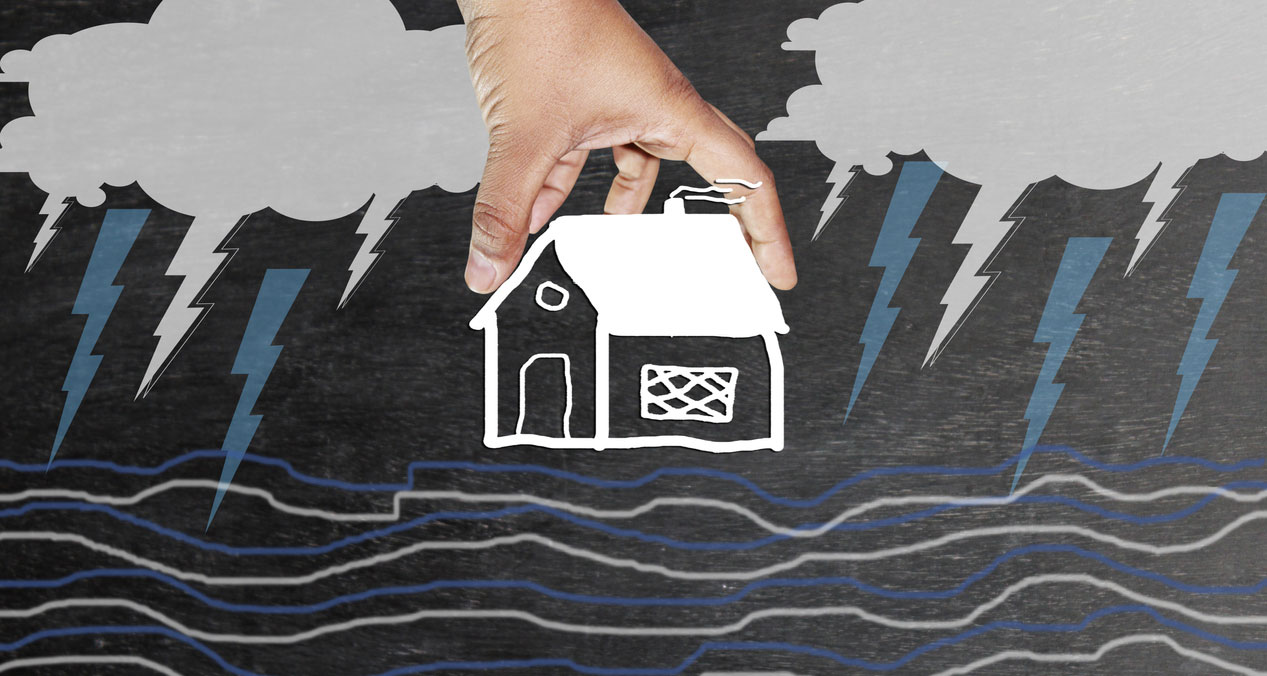An extraordinary cyclone came to pass recently, wreaking havoc along India’s eastern coast. Cyclone Fani, a rare April storm, lasted 11 days, making it the longest that any cyclone has lived in the Bay of Bengal. Around 65 casualties have been reported so far, with damages to infrastructure worth thousands of crores.
Insurance claims will reportedly touch Rs 3,500 crore. After such disasters, the IRDAI often instructs insurance companies to settle claims faster by simplifying claims processes and relaxing norms. A vast majority of these claims are reportedly for damaged crops and property.
Insurance can be a life-saver when natural disasters strike. One must ensure adequate coverage not just for life and health risks, but also for one’s home, vehicles, and valuables — especially if one lives in an area prone to natural disasters. Cyclonic storms are among the many destructive situations that home insurance protects you against. Even though you may suffer significant damages, your insurance policy safeguards your finances and helps getting your life back on track sooner.
What insurance covers
A home insurance policy protects you against several perils, including natural disasters such as earthquakes, flood, lightning strike, cyclones and landslides. The insurance covers both your property structure as well as its contents. Man-made perils such as strikes, fire, theft and robbery are also included. You don’t have to be a home owner to buy insurance. You can protect the contents of your rented home.
First step
If disaster has struck in some form, you’ll need to file a claim. First things first — ensure that you and your family are out of harm’s way, safe and dry. You don’t want additional harm to come to you or your loved ones in the aftermath of the damage to your home. Next, as soon as you can, intimate your insurance company about the possibility of a claim being made. You can do so by phone, email or fax. Remember that claims need to be made in a timely fashion. Not initiating the claim according to the process laid down by the insurer could lead to the rejection of a belated claim.
It helps to have the insurer’s contact details stored in an accessible place such as on your phone or in an online document. This would be useful in case you’re unable to access your home or policy document following the damage. Take photographs and recordings of the damage to your home. Also, collect any receipts or bills for expenses incurred that can be reimbursed by your insurer.
Second step
By intimating your insurer, you have initiated the claims process. A surveyor will be assigned by the insurer to assess your damages. You’ll be required to fill out a claims form along with all the necessary documents, proof, receipts and bills that may be required to facilitate the claim. Depending on the nature of the claim, additional documents may be asked for. A copy of the FIR, the fire brigade’s report, legal or expert opinions may be required. Once the claim is validated, the insurance amount will be paid out.
What insurance won’t cover
As the insurance is all about protecting you against disasters, do take the time out to read the fine print to understand what your policy will and won’t cover. We’ve talked about inclusions above.
There are several situations in which claims may be rejected. For example, if you misinterpret or do not disclose critical information about your property, have pre-existing damages and or have home items with defects, or if the damages were caused because of your negligence, claims may not be covered. Kuccha homes, homes older than 30 years, or damages brought about by regular wear and tear are typically not covered. Damages caused by nuclear war, riots, civil war, enemy invasion and consequential losses are not covered by any policy. Certain damages like riots, strikes, and malicious damage can be covered upon the payment of an additional premium.
How to be prepared
Always keep handy a copy of the policy, policy number, your identity proof and address proof. You can store these online for easy access via your phone. Be it your home insurance policy or other financial knowledge, ensure that key members of your family are equipped with critical information that may be required during a disaster. You may be personally incapacitated, but armed with the knowledge, your family members may be able to act on your behalf and take the decisions necessary for your family’s financial well-being.
Adequate car cover
Natural disasters may also damage your vehicles. Therefore, beyond the third-party vehicle insurance that is mandatory by law, always have comprehensive insurance coverage that not only covers third party damages but also own damage.
A comprehensive policy with premium benefits can save you from the steep charges caused by damages during natural disasters such as floods. With add-ons such as zero-depreciation cover and invoice value cover, your vehicles may suffer wear-and-tear or extensive damage, but you’ll get full value for your vehicle. This is especially useful in case you live in a flood-prone area.
With climate changing rapidly around the world, natural calamities may intensify in many parts of the globe. The best you can do is be prepared with adequate coverage and financial know-how.
The writer is CEO of `BankBazaar.com`











